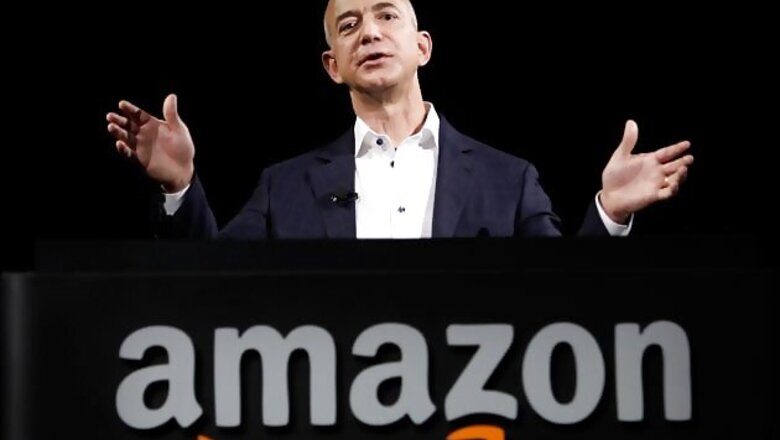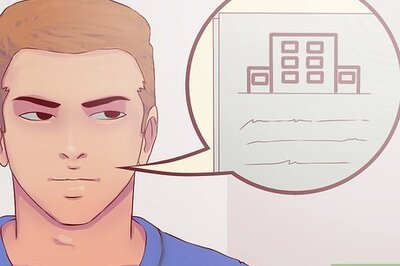
views
New York: Over nearly two decades, Jeff Bezos built Amazon.com from a scrappy online bookseller into an e-commerce empire, shook up the print publishing world with the Kindle e-reader and even started a space travel company.
Now he is buying The Washington Post for $250 million, purchasing one of the most celebrated US newspapers at a time when the print publishing industry is enduring steep declines in revenues and readership.
The question is, what happens now?
"There will of course be change at The Post over the coming years," Bezos wrote in a memo to Post employees published Monday on the paper's website.
"The Internet is transforming almost every element of the news business: shortening news cycles, eroding long-reliable revenue sources, and enabling new kinds of competition, some of which bear little or no news-gathering costs," he wrote. "There is no map, and charting a path ahead will not be easy. We will need to invent, which means we will need to experiment."
With Amazon, Bezos built an e-commerce empire that changed how we buy everything from books to toilet paper - first on the Web, and more recently on our phones. He is also a driving force behind the rise of digital content, launching the first e-reader that gained mass acceptance and challenging market leader Apple with the sale of downloadable music and movies.
It's not clear what Bezos will do with the Post. He told the newspaper in an interview that he doesn't want to imply that he has a specific plan.
"This will be uncharted terrain," he said.
Amazon declined to make Bezos available for an interview with The Associated Press.
He founded Amazon.com in 1994 after quitting a Wall Street hedge fund. Though at first he wasn't sure what he wanted to sell online, he already understood what an enormous impact the Internet would soon make. He decided on an online bookstore because it would enable people to browse through millions of titles with the click of a mouse.
He and his wife, MacKenzie, whom he married in 1993, set out on road trip to Seattle, a city with an abundance of tech talent and proximity to a large book distributor in Oregon. While MacKenzie drove, Bezos wrote up the business plan that would become Amazon.com.
With Bezos's parents and a few friends as investors, Amazon began operating out of the Bezos' Seattle garage on July 16, 1995. The first book sold on the site was no Harry Potter or Fifty Shades of Grey. It was Douglas Hofstadter's Fluid Concepts and Creative Analogies: Computer Models of the Fundamental Mechanisms of Thought.
The business grew much more quickly than anyone expected. During the first month, Amazon sent out orders to eager buyers in every state and in 45 different countries, and customers were soon clamoring for more than just books.
"We actually started to get emails from customers saying, 'Would you consider selling music, because I'd really like to buy music this way, and DVDs, and electronics?'" Bezos told the AP in 2005.
Amazon began trading publicly in May 1997, despite never having turned a profit. It took five more years and the addition of products such as compact discs, toys and consumer electronics before the company reported any net income.
Today, Amazon.com Inc. remains the world's largest online retailer, and Bezos has amassed a $25 billion fortune, based on the most recent estimates by Forbes magazine. In 1999, he was named as Time Magazine's "Person of the Year."
At Amazon's helm, Bezos has been instrumental to the growth of e-books and other digital content. The first Kindle came out in 2007. It was not the first e-reader, but it was the first to gain mass-market acceptance, and it paved the way for an entire family of Kindles that the company now offers.
Bezos's other interests include space travel. In 2000, he founded a company called Blue Origin to develop a vertical takeoff and landing rocketship that would fly passengers to suborbital space.
"He is a premier disruptor," said Forrester Research analyst Susan Bidel. "If someone is going to think outside of the box and figure out a way for newspapers to thrive, then maybe he will be able to do it."




















Comments
0 comment